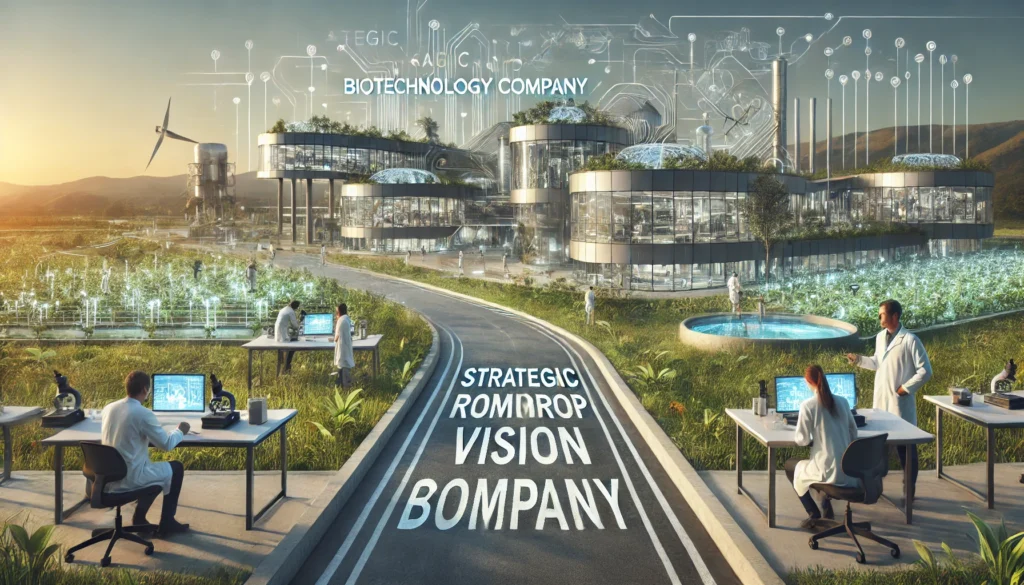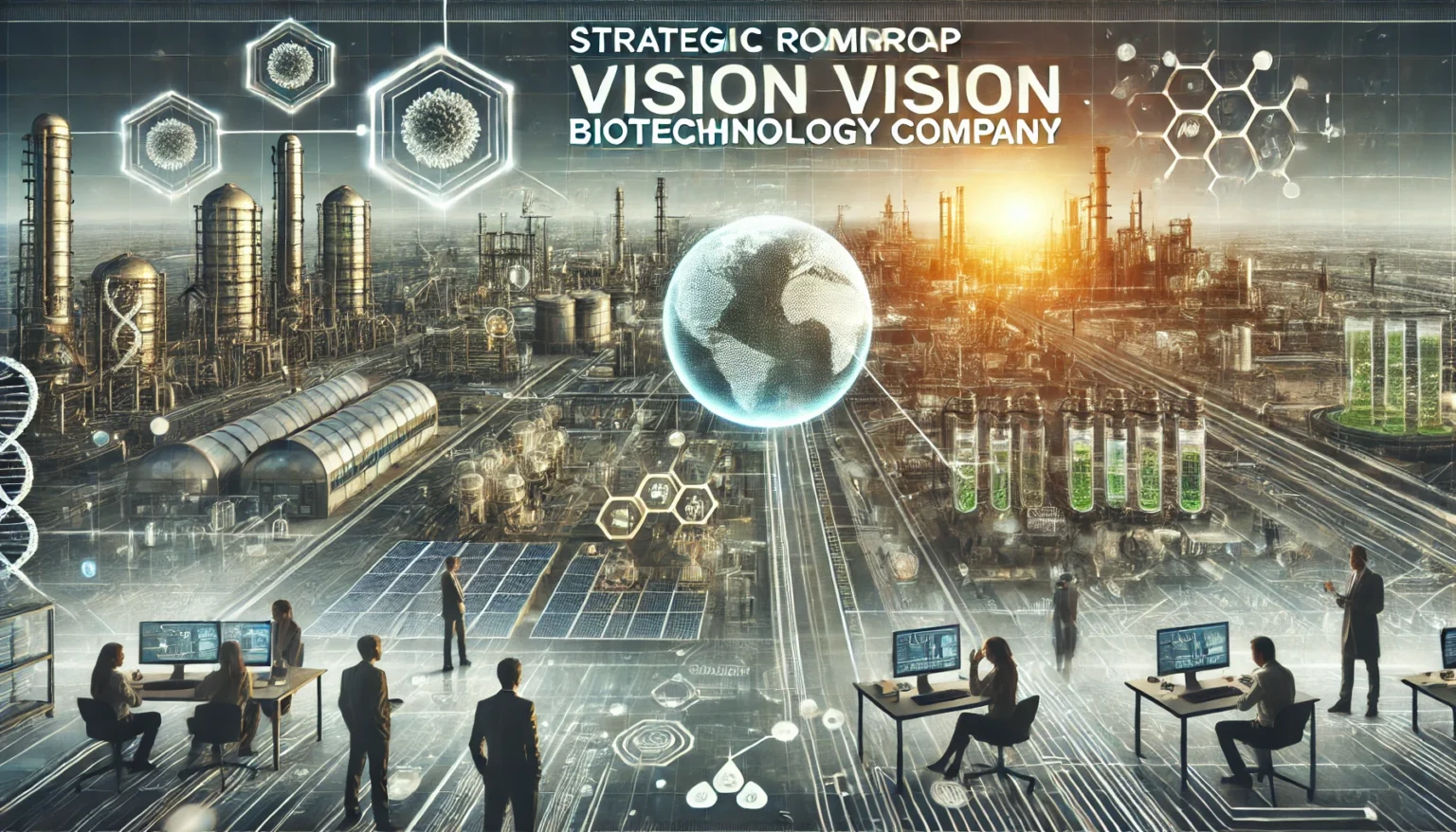A strategic roadmap vision biotechnology company is a detailed plan that outlines how it will achieve its long-term goals. It sets the direction for the organization and helps align its efforts across various departments. The roadmap is crucial for guiding the company through challenges while ensuring it stays focused on its mission.
The biotechnology sector holds immense opportunities across various fields such as healthcare, agriculture, and environmental sustainability. The demand for groundbreaking solutions in these areas is growing globally, and a well-defined roadmap will ensure a company’s ability to meet these demands while staying ahead of competitors.
Defining the Vision
The first step in any strategic roadmap is defining the company’s vision. A clear vision is essential for guiding decision-making and motivating employees.
Mission Statement:
The company’s mission statement should succinctly define its purpose. For example, a biotechnology company might have a mission like “Improving global health through innovative biotechnology solutions.” This will provide focus and clarity to everyone involved in the organization.
Core Values:
The company’s values should emphasize innovation, sustainability, ethical research, and customer-centric solutions. These values should guide the actions and decisions made by employees and leadership.
Future Goals:
The company should define long-term goals, such as becoming a leader in specific biotechnology fields like gene therapy or sustainable agricultural practices. These goals will serve as milestones on the path toward fulfilling the mission.
Innovation and R&D Strategy
Innovation is the heart of any biotechnology company, and a well-thought-out research and development (R&D) strategy is critical to success.
- Research Focus Areas: The company needs to prioritize R&D efforts in areas with high potential, such as precision medicine, gene editing technologies (like CRISPR), and sustainable agriculture. These focus areas should align with global health and environmental challenges.
- Technology Development: Investing in cutting-edge technologies is essential. This includes advancements in AI-driven drug discovery, biotechnology platforms, and bioinformatics tools that can accelerate the development of new products.
- Intellectual Property (IP) Management: Protecting innovations through patents and trademarks is crucial for maintaining a competitive edge. A biotechnology company must build a robust IP portfolio to safeguard its discoveries and attract investment.
Product Development and Commercialization
Bringing innovative products to market is at the core of any biotechnology company’s operations. The product development phase is crucial to the company’s growth, from research through to commercialization.
Pipeline Development:
The company should establish a clear timeline for its product pipeline. This includes defining the stages of development: discovery, preclinical trials, clinical trials, and market launch. Each phase should be supported with sufficient resources.
Market-Driven Innovation:
The company’s product development should be driven by the needs of the market. By addressing unmet needs, such as treatments for rare diseases or environmentally friendly agricultural products, the company can create a significant impact and build a loyal customer base.
Regulatory Compliance:
Biotechnology companies must navigate complex regulatory environments. Ensuring that products meet the standards of agencies like the FDA (U.S. Food and Drug Administration) or EMA (European Medicines Agency) is essential for approval and market success.
Commercialization Strategy:
A clear commercialization strategy is vital to maximize the reach of the products. This includes identifying target markets, determining pricing strategies, and establishing distribution channels.
Strategic Partnerships
Strategic partnerships play an important role in the growth and expansion of a biotechnology company.
- Academic Collaborations: Partnering with universities and research institutions can provide access to advanced research and innovation. These collaborations can help the company stay at the forefront of scientific discovery.
- Corporate Alliances: Biotechnology companies can also benefit from forming joint ventures with pharmaceutical companies, technology firms, and other biotech firms. These partnerships can help in scaling products, gaining market access, or co-developing new solutions.
- Public-Private Partnerships: Collaborations with government bodies and non-governmental organizations (NGOs) are essential for addressing public health issues, sustainability goals, or global health crises. Such partnerships can enhance credibility and bring in necessary funding.
Operational Excellence
Operational excellence is key to running an efficient biotechnology company. This includes optimizing internal processes, investing in infrastructure, and developing talent.
- Talent Development: Recruiting and retaining top talent in fields like biotechnology, data science, and bioengineering is crucial. The company should also focus on continuous training and professional development to keep the workforce updated on the latest innovations.
- Infrastructure Investments: A biotechnology company needs to invest in state-of-the-art laboratories, manufacturing facilities, and equipment to maintain high-quality standards and ensure the smooth execution of R&D and production.
- Process Optimization: Streamlining workflows is essential to improving efficiency and reducing costs. By implementing automation and advanced manufacturing technologies, companies can lower costs while maintaining quality.
Sustainability and Ethical Responsibility
Biotechnology companies have a responsibility to contribute positively to society and the environment.
- Sustainable Practices: Adopting environmentally friendly practices in product development and manufacturing is essential. This includes reducing waste, lowering energy consumption, and developing sustainable biotech solutions, such as biofuels or biodegradable plastics.
- Bioethics: Ethical research practices are paramount in the biotechnology field. Companies must ensure that their R&D efforts adhere to ethical standards and engage with stakeholders to address concerns about issues like gene editing and animal testing.
- Corporate Social Responsibility (CSR): CSR initiatives, such as supporting health initiatives or environmental conservation, can help the company gain goodwill and improve its public image.
Risk Management and Adaptability
Every biotechnology company faces risks, whether from market fluctuations, scientific challenges, or regulatory hurdles. A well-planned risk management strategy ensures that the company is prepared for unforeseen challenges.
- Identifying Risks: It is important to regularly assess the risks that could affect the company. This includes market risks, regulatory changes, and technological failures.
- Contingency Planning: The company should develop contingency plans to respond to setbacks in R&D, supply chain disruptions, or regulatory delays. Having a flexible approach can minimize the impact of unforeseen challenges.
- Monitoring Trends: Biotechnology is a fast-paced industry. Staying updated on emerging technologies, market shifts, and regulatory changes allows the company to remain competitive and proactive.
Performance Metrics and Evaluation
To ensure the strategic roadmap stays on track, performance metrics and regular evaluations are necessary.
- Key Performance Indicators (KPIs): The company should define KPIs to measure progress in areas like product development, market share, and revenue growth. These indicators will help gauge the success of the roadmap.
- Regular Review Processes: Periodic reviews should be conducted to assess the company’s progress toward its goals. Adjustments should be made if necessary to respond to changes in the market or technological advancements.
Conclusion
The strategic roadmap vision biotechnology company is a dynamic and essential tool for achieving sustainable growth. By focusing on innovation, strategic partnerships, operational excellence, and ethical responsibility, a company can lead the way in transforming the biotechnology industry. A well-defined vision, supported by clear goals and strategies, will allow the company to navigate challenges, seize opportunities, and contribute positively to society.
The biotechnology sector is poised for tremendous growth, and with a solid strategic roadmap, companies can not only thrive but also make a lasting impact on global health and sustainability.
FAQs
Q: Why is a strategic roadmap important for a biotechnology company?
A: It provides a clear vision, aligns resources with goals, and ensures sustainable growth in a competitive industry.
Q: What is the role of innovation in a biotech strategic roadmap?
A: Innovation drives breakthrough technologies, enhances competitiveness, and addresses critical market needs.
Q: How does a biotechnology company ensure ethical practices?
A: By adhering to regulatory standards, maintaining transparency, and engaging stakeholders on ethical concerns.
Q: What are key challenges addressed in a biotech roadmap?
A: Challenges include regulatory hurdles, market risks, scientific uncertainties, and resource allocation.
Q: How do partnerships benefit a biotechnology company?
A: Partnerships accelerate innovation, expand market reach, and share the burden of research and commercialization.
Article Recommendations
Who Owns Precision Irrigation and Pump Company: Ownership History Explained
Contact Felix Johnson at SweetDiscord.com: Quick Tips for Effective Communication
ProcurementNation.com Supply Chain: Transforming Procurement for Modern Businesses
Koko Home – Business Development Lead: Driving Growth and Innovation












